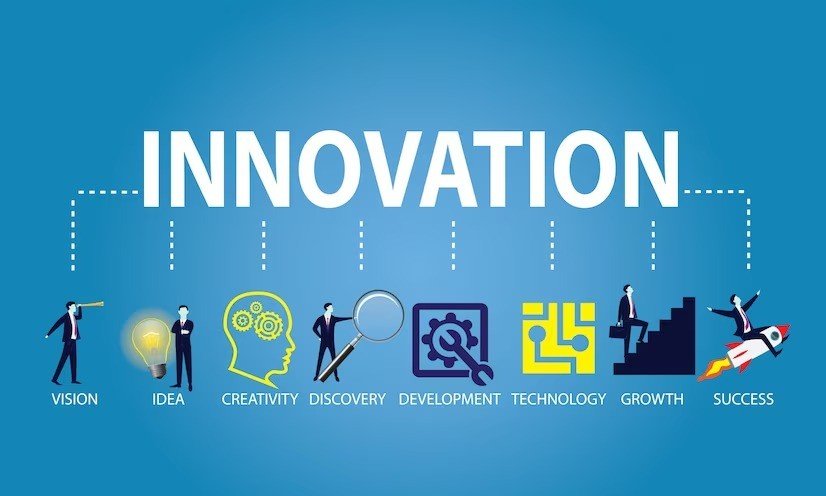In a rapidly advancing digital era, emerging technologies are at the heart of global transformation. From reshaping industries to redefining daily life, these innovations are empowering societies to tackle challenges and explore new frontiers. This guide explores the most exciting and impactful technologies driving change today, offering insights into their applications and future potential.
1. Artificial Intelligence: Revolutionizing Problem-Solving
Artificial Intelligence (AI) is no longer a concept confined to science fiction. Today, it stands as one of the most influential technologies reshaping diverse sectors. AI’s ability to mimic human cognition is transforming industries, offering new ways to optimize efficiency and deliver personalized experiences.
- Real-World Applications:
- Healthcare: AI-powered diagnostics, predictive analytics, and drug discovery platforms like BenevolentAI are saving lives.
- Retail: From personalized product recommendations to demand forecasting, AI is boosting profitability for major retailers.
- Education: Adaptive learning platforms powered by AI are tailoring education to individual student needs.
As AI evolves, innovations in natural language processing, generative AI models, and ethical frameworks are set to broaden its scope and impact.
2. Blockchain: Building Trust Through Transparency
Blockchain technology is revolutionizing how data is stored and shared, offering a decentralized and secure framework for digital transactions. Initially popularized by cryptocurrencies, blockchain is now finding applications far beyond finance.
- Key Use Cases:
- Supply Chain Management: Blockchain ensures transparency in tracking goods from origin to consumer.
- Healthcare: Securely storing patient records and enabling seamless sharing between providers.
- Voting Systems: Promoting secure and tamper-proof digital voting processes.
The advent of smart contracts and decentralized apps (dApps) is expanding blockchain’s utility across various industries.
3. Internet of Things (IoT): Connecting the World
The Internet of Things (IoT) is a network of interconnected devices that communicate and share data in real time. This technology is powering the creation of smart environments, improving convenience, efficiency, and safety.
- Applications Across Sectors:
- Smart Homes: IoT-enabled devices like Nest thermostats and Philips Hue lighting systems are enhancing living spaces.
- Healthcare: Wearables and remote monitoring devices are revolutionizing patient care and wellness.
- Industrial Automation: IoT sensors are optimizing operations in manufacturing and logistics.
As 5G connectivity continues to expand, IoT devices will become more integrated and transformative.
4. Renewable Energy Innovations: A Path to Sustainability
Emerging technologies in the renewable energy sector are crucial to combating climate change and promoting sustainable development. These innovations are making clean energy more efficient, accessible, and scalable.
- Key Technologies:
- Solar Energy: Advancements in solar cell materials like perovskite are improving efficiency and affordability.
- Wind Power: Offshore wind farms with larger, more efficient turbines are driving renewable energy adoption.
- Energy Storage: Breakthroughs in battery technology, such as solid-state batteries, are enabling reliable energy storage solutions.
Integration of smart grids and AI-driven energy management systems is accelerating the transition to renewable energy.
5. Extended Reality (XR): The Future of Immersive Experiences
Extended Reality (XR), encompassing augmented reality (AR), virtual reality (VR), and mixed reality (MR), is transforming how people interact with digital content. From entertainment to professional training, XR is creating immersive experiences that bridge the gap between the virtual and physical worlds.
- Applications:
- Gaming and Entertainment: Platforms like Oculus Quest and PlayStation VR are redefining gaming experiences.
- Healthcare: VR is being used for pain management, physical therapy, and surgical training.
- Workplace Training: AR and VR solutions are providing immersive training for industries like aviation and construction.
The integration of XR with AI and 5G connectivity will unlock even greater possibilities in the near future.
6. Quantum Computing: Unlocking Unprecedented Possibilities
Quantum computing represents a paradigm shift in computational power. Unlike classical computers, quantum computers use qubits to perform calculations at incredible speeds, solving problems that were previously considered unsolvable.
- Potential Applications:
- Drug Discovery: Accelerating the development of new medicines by simulating molecular structures.
- Cryptography: Developing unbreakable encryption methods for secure communications.
- Climate Modeling: Providing more accurate simulations to address climate change challenges.
Tech leaders like IBM, Google, and Rigetti Computing are spearheading efforts to make quantum computing more accessible.
7. Biotechnology: Bridging Biology and Technology
Biotechnology is redefining healthcare, agriculture, and environmental conservation by leveraging advancements in biology and technology. It is offering solutions to some of the world’s most pressing challenges.
- Notable Innovations:
- CRISPR Gene Editing: Revolutionizing genetic engineering with potential cures for hereditary diseases.
- Synthetic Biology: Designing new biological systems for applications in medicine, food, and materials.
- Bioplastics: Developing eco-friendly alternatives to traditional plastics.
Ethical considerations and regulatory frameworks are essential for the responsible advancement of biotechnology.
8. Cybersecurity: Safeguarding the Digital Age
As technology advances, so do the threats posed by cyberattacks. Cybersecurity technologies are evolving to counteract these risks, ensuring the safety of personal and organizational data.
- Emerging Trends:
- AI-Driven Security: Utilizing machine learning to detect and respond to threats in real-time.
- Zero Trust Architecture: Implementing strict identity verification processes for enhanced security.
- Blockchain-Based Security: Protecting sensitive data through decentralized systems.
Investing in cybersecurity is critical as digital transformation accelerates worldwide.
Conclusion
The pace of technological innovation is faster than ever, and its potential to solve global challenges is immense. From AI and quantum computing to renewable energy and biotechnology, these emerging technologies are shaping a brighter future. By staying informed and embracing these advancements, we can ensure that innovation continues to drive progress and improve lives across the globe.
